Minnesota Senior Assistance Programs, Benefits, and Grants (2026)
 Senior Population: 1,443,737
Senior Population: 1,443,737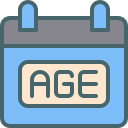 Median Age: 70.0
Median Age: 70.0 Veterans: 11.6%
Veterans: 11.6% Disability: 24.5%
Disability: 24.5%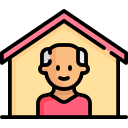 Renters: 19.7%
Renters: 19.7%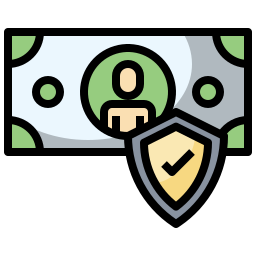 With Social Security Income: 72.9%
With Social Security Income: 72.9%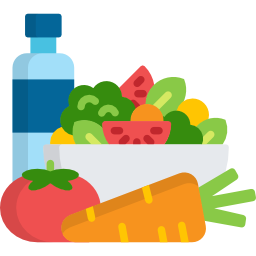 With Food Stamp/SNAP Benefits: 7.1%
With Food Stamp/SNAP Benefits: 7.1%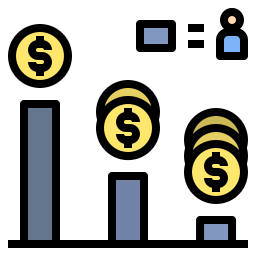 Below 100% of Poverty Level: 9.3%
Below 100% of Poverty Level: 9.3%Last updated:
If you live in Minnesota and need help with money, housing, food, healthcare, transportation, or home repairs, this guide brings together trusted programs and how to use them. We link directly to official state and federal sources so you can apply with confidence.
If You Need Emergency Help
- Call 911 for any life-threatening emergency.
- Call or text 988 for the Suicide & Crisis Lifeline (24/7).
- Call 211 or visit Minnesota 211 for urgent help finding food, shelter, heating assistance, and other local services: Get help at Minnesota 211.
- If you’re unsure where to start, call the state’s helpline for older adults: Senior LinkAge Line (SHIP) at 800-333-2433 (Mon–Fri, business hours). They can screen you for benefits and help with applications.
- If your heat or power is shut off or at risk, contact the Energy Assistance Program (EAP) right away or call 651-539-1500.
Key Takeaways
- Minnesota has strong statewide help for older adults, including cash support, food, energy, housing, home repairs, and medical care. Start with the Senior LinkAge Line for one-on-one guidance.
- Energy and housing funds are limited and often first-come, first-served. Apply early each season and get on waitlists.
- You may qualify for more than one benefit at the same time (for example, SNAP + Energy Assistance + Property Tax Refund).
- If you’re 65+ with low income, check Supplemental Security Income (SSI) and Minnesota’s Supplemental Aid (MSA) for monthly cash and housing add-ons.
- Keep records: IDs, proof of income, rent/utility bills, and medical bills. These speed up approvals and help you appeal if denied.
Quick Start: Programs at a Glance
| Program | Who It Helps | What You Get | Where to Apply / Learn More |
|---|---|---|---|
| Senior LinkAge Line (SHIP) | All older Minnesotans, caregivers | Free benefits check, Medicare help, referrals | Senior LinkAge Line |
| Energy Assistance (EAP) | Households at/under 50% of state median income | Help with heating/electric bills, furnace repair | Apply for Energy Assistance |
| SNAP (Food Stamps) | Low-income households; special rules for 60+ | Monthly grocery money (EBT Card) | SNAP in Minnesota |
| SSI + Minnesota Supplemental Aid (MSA) | 65+ with limited income/resources | Monthly cash; housing assistance add-on may be available | SSI, MSA |
| Medical Assistance (Medicaid) & Elderly Waiver | Low-income seniors; those needing long-term care | Health coverage; in-home/community services | Elderly Waiver |
| Section 202 Supportive Elderly Housing | Very low-income 62+ | Affordable senior housing with services | HUD Section 202 |
| USDA Section 504 Home Repair | Homeowners 62+ with low income | Grants up to 10,000forhealth/safetyrepairs;loansupto10,000 for health/safety repairs; loans up to 40,000 at 1% | USDA Section 504 in MN |
| Metro Transit TAP | Low-income riders | $1 rides for 1 year with Go-To Card | TAP Enrollment |
Reality check: Some programs have waitlists or limited funding (housing vouchers, home repairs). Apply early, ask about priority categories (age, disability, health/safety), and always ask to be added to a waitlist.
About Minnesota Seniors (Context)
- Senior population: 1,025,928 (17.9% of Minnesotans), median age 73; 27.9% report a disability; 88.8% receive Social Security; 6.3% receive SNAP; 9.5% below poverty line. Source: American Community Survey (ACS) 2023.
These figures help explain demand for services—and why early applications matter.
Money and Cash Assistance
Social Security and SSI (Federal)
- Social Security retirement and survivor benefits are based on your work record. Manage your benefits at the Social Security Administration (SSA).
- Supplemental Security Income (SSI) provides monthly cash to people 65+ (and people with disabilities) with limited income and resources. SSI can also unlock other programs in Minnesota, including MSA and Medicaid.
Tip: If you’re close to the income limit, deductions (like out-of-pocket medical costs) may help. Ask Senior LinkAge Line to review.
Minnesota Supplemental Aid (MSA)
- MSA is the state cash supplement for people who receive SSI (and some who do not but have similar financial need).
- A separate MSA Housing Assistance add-on is available for eligible people with disabilities whose rent is high compared to income.
Learn more and apply via county/tribal agency or MSA information (MN DHS).
Reality check: MSA amounts vary by living situation and change over time. Ask your county worker or the Senior LinkAge Line to calculate your potential benefit.
General Assistance (GA)
- GA helps adults without minor children who cannot work for specified reasons (for example, illness, age-related limitations). It provides a modest monthly cash benefit and is often a bridge to longer-term programs.
More info: GA factsheet (MN DHS).
Emergency General/Assistance
- Counties can provide one-time emergency help for basic needs (rent, utilities, etc.). Ask your county human services office or apply at Minnesota’s online benefits portal: MNbenefits (apply for cash/food/emergency help).
Property Tax Relief (Homeowners and Renters)
- Senior Citizens Property Tax Deferral Program lets qualifying homeowners defer a portion of property taxes, paying it later (with interest) and easing monthly costs.
Learn more: Minnesota Department of Revenue — search for “Senior Citizens Property Tax Deferral Program” on MN Dept. of Revenue. - Property Tax Refunds (Homestead Credit Refund for homeowners and Renter’s Property Tax Refund) can provide annual relief based on your income and property tax/rent.
Start here: Property Tax Refunds (MN Revenue).
Tip: You can typically claim the Property Tax Refund even if you don’t owe state income tax. Keep your property tax statement or CRP (rent certificate) handy.
Utility Bills and Energy
- Energy Assistance Program (EAP): Helps with heat and electric bills and may repair/replace unsafe furnaces. Income must be at or below 50% of the State Median Income. Apply through your local provider: Energy Assistance (MN Dept. of Commerce) or call 651-539-1500.
- Reach Out for Warmth (ROFW): Local funds for households who don’t qualify for EAP or have extra need. Contact: Reach Out for Warmth (Prairie Five) or call 800-292-5437.
Reality check: Energy funds can run out late in the season. Apply as soon as applications open (usually fall). If denied, ask for community funds and weatherization.
Food and Nutrition
SNAP (Food Stamps)
- SNAP provides monthly grocery money on an EBT card. For seniors, medical costs and shelter costs can be deducted, which can raise your benefit.
Apply online or learn more: SNAP for Seniors (MN DHS).
Minnesota Food Assistance Program (MFAP)
- MFAP serves certain noncitizens age 50+ who are otherwise eligible but do not qualify for federal SNAP. It works much like SNAP.
Application (DHS form): MFAP Application.
Commodity Supplemental Food Program (CSFP)
- CSFP provides a monthly box of healthy foods to eligible adults 60+ who prepare their own meals. Pickup sites operate statewide at no cost.
Apply here: CSFP Application (MN Dept. of Health portal).
Senior Dining and Meals at Home
- Hot meals in community settings and home-delivered meals (Meals on Wheels) are offered under the Older Americans Act. Contributions are suggested but not required.
Find local providers through the Senior LinkAge Line (800-333-2433).
Tip: If your SNAP is low, ask for a review using the “medical expense deduction” rules for seniors and people with disabilities.
Housing and Home Repairs
Affordable Rent and Supportive Housing
- Section 202 Supportive Housing for the Elderly (HUD): Housing communities for very low‑income adults 62+. Tenants generally pay about 30% of adjusted income, and services may be available onsite.
Learn more and search providers: HUD Section 202. - Housing Choice Voucher (Section 8) and Public Housing: Apply through local public housing agencies (PHAs). Waitlists open and close—watch for local notices. Find listings and openings through trusted statewide tools like HousingLink (nonprofit): HousingLink search and ask PHAs about senior/disabled preferences.
State Rental Help
- Bridges Rental Assistance (MN Housing): Temporary rent help for people with serious mental illness; works like a bridge to longer-term vouchers/housing. Contact Minnesota Housing or your local mental health provider to see if you qualify: Minnesota Housing — Housing Help or call 800-657-3769.
- MSA Housing Assistance (MN DHS): Monthly housing add‑on for eligible MSA recipients with disabilities. Details: MSA Housing Assistance.
Reality check: Many rental programs have long waitlists. Get on multiple lists, keep your contact info updated, and ask for reasonable accommodations if you have a disability.
Home Repair, Safety, and Weatherization
- Fix Up Loan Program (MN Housing): Low‑interest home improvement loans. Some options are unsecured; repayment terms can be up to 20 years. Good for accessibility and essential repairs. Details: Fix Up/Home Improvement (MN Housing).
- USDA Section 504 Home Repair (Rural Development):
- Grants up to $10,000 for homeowners 62+ to fix health/safety hazards.
- Loans up to $40,000 at 1% interest for 20 years.
Apply in Minnesota: USDA Section 504.
- Weatherization Assistance Program (WAP): Free energy-saving repairs (insulation, air sealing, furnace tune-ups) for income‑eligible households. Start here: Weatherization (MN Commerce).
Tip: Ask for a home safety check (grab bars, ramps, smoke/CO alarms) through your county, AAA, or local nonprofits. If denied for a grant, ask about low‑interest loans and volunteer programs.
Housing & Home Repair Programs (Summary Table)
| Program | Best For | Typical Help | How to Start |
|---|---|---|---|
| HUD Section 202 | 62+ with very low income | Affordable senior apartments; often with services | HUD Section 202 |
| Housing Choice Voucher/Public Housing | Low-income renters | Rent based on income; senior/disabled preferences possible | Contact local PHA; see HousingLink |
| Bridges Rental Assistance | Serious mental illness + low income | Temporary rent subsidy | MN Housing — Housing Help |
| MSA Housing Assistance | MSA recipients with high rent burden | Monthly housing add-on | MSA Housing Assistance |
| Fix Up Loan (MN Housing) | Low/mod homeowners needing repairs | Low‑interest loans; accessibility upgrades | MN Housing — Fix Up |
| USDA Section 504 | Low-income homeowners 62+ | Grants/loans for health & safety fixes | USDA Section 504 MN |
| Weatherization (WAP) | Low-income households | Free energy upgrades | MN Commerce — Weatherization |
Healthcare, Medicare, and Long‑Term Care
Medicare Counseling (Free Help)
- The Senior LinkAge Line is Minnesota’s State Health Insurance Assistance Program (SHIP). They help you compare Medicare plans, check Extra Help eligibility, and resolve billing issues. Call 800-333-2433.
Medical Assistance (Minnesota’s Medicaid) and Elderly Waiver
- Medical Assistance (MA) helps with doctor visits, hospital care, and long‑term care for eligible seniors.
- The Elderly Waiver (EW) pays for in‑home and community services so you can stay at home instead of moving to a nursing facility. You must qualify financially and need a certain level of care.
Apply through your county/tribal agency or ask Senior LinkAge Line to connect you.
Reality check: MA and EW have both income and asset limits, but some assets (home, one vehicle) may be excluded. Spend‑down and estate recovery rules can be complex—get free counseling before making big decisions.
Adult Day Services
- Licensed adult day centers provide daytime supervision, health monitoring, and activities. Many operate extended hours. Learn more and find licensed providers: Adult Day Care (MN DHS).
Prescription Drug Help
- Medicare Part D and Medicare Advantage plans cover prescriptions. The Senior LinkAge Line can check which plans cover your drugs at the lowest cost.
- Extra Help (Low-Income Subsidy) reduces Part D premiums and copays: Apply for Extra Help (SSA).
- Medicare Savings Programs (QMB/SLMB/QI) may pay your Medicare Part B premium and more. Ask SHIP: Senior LinkAge Line.
Low‑Cost and Free Clinics
- Phillips Neighborhood Clinic: Free clinic run by University of Minnesota health students under supervision; offers many basic medical services.
- Neighborhood HealthSource: Sliding‑fee clinics for underinsured patients; cancer screening, diabetes care, minor procedures, and more.
- Community‑University Health Care Center (CUHCC): Care for all patients regardless of ability to pay; sliding‑fee discounts.
Dental Care
- Caring Hands Dental Clinic: Comprehensive dental care; accepts various payers, designed to be affordable.
- Hope Dental Clinic — Seniors: Free dental treatments for low‑income patients; $20 administrative fee per visit.
- Community Dental Care: Nonprofit clinics with preventive, restorative, and emergency services; supports many insurance plans and offers discounts for uninsured.
- Veterans: The Minnesota Dept. of Veterans Affairs (MDVA) Dental Assistance provides up to an annual credit for dental care; extra funding available for dentures/extractions.
Transportation
Medical Rides (Non‑Emergency)
- MTM (Medical Transportation Management) arranges non‑emergency medical transportation for eligible Medical Assistance (Medicaid) members. Schedule rides online or by phone ahead of appointments: MTM Minnesota — Recipients or use MTM Link. Services typically run Mon–Fri, 7am–6pm.
Reality check: Not all seniors qualify—this is mainly for MA enrollees. Book at least 3 business days ahead.
Public Transit Discounts
- Transit Assistance Program (TAP): $1 rides for one year with a special Go‑To Card for income‑eligible riders. Apply here: TAP Enrollment (Metro Transit).
- Free Ride buses on select downtown routes: Metro Transit runs clearly marked “Free Ride” buses in certain areas. If traveling within the Downtown Zone on regular buses, fares are reduced (e.g., 50 cents in Minneapolis). Details: Free Ride and Downtown Zone (Metro Transit).
- Duluth Transit Authority (DTA): Disabled veterans ride free with a VA Service‑Connected ID—no registration needed. Info: DTA Fares & Passes.
Rural and Suburban Options
- Many counties have dial‑a‑ride or deviated fixed routes. Start with your county transit provider or see MnDOT Public Transit for links and contacts.
- Volunteer driver programs (often through senior centers or nonprofits) may help with medical and grocery trips. Ask Senior LinkAge Line.
Transportation Options (Summary Table)
| Service | Area | Who Qualifies | How to Use |
|---|---|---|---|
| MTM Medical Rides | Statewide | MA (Medicaid) members needing medical rides | MTM Minnesota — Recipients |
| Metro Transit TAP | Twin Cities region | Income‑eligible riders | Apply for TAP |
| Free Ride/Downtown Zone | Downtown Minneapolis/St. Paul | All riders | Free Ride info |
| DTA Disabled Veterans Free | Duluth area | Disabled veterans with VA SC ID | DTA Fares |
| County & Volunteer Transit | Statewide | Seniors and riders with limited options | Senior LinkAge Line / MnDOT Transit |
Employment and Volunteering
- Senior Community Service Employment Program (SCSEP): Paid, part‑time training jobs for people 55+ with limited income. Helps re‑enter the workforce and build skills. Learn more: Older Workers — MN DEED or call 651-259-7560.
- Volunteer opportunities (friendly visiting, meal delivery, tax prep) can build community and skills—ask Senior LinkAge Line or check local nonprofits (Catholic Charities, Salvation Army).
Reality check: Part‑time hours and training wages can affect some benefits. Before you start, ask SHIP or your county worker how work earnings might change your SSI/MSA/SNAP.
Charities and Community Organizations
- Catholic Charities Twin Cities: Emergency help with rent, utilities, meals, shelter, and home supports as funding allows. Details: Catholic Charities of St. Paul and Minneapolis.
- The Salvation Army Twin Cities: Food pantries, shelters, utility assistance, and more (funding varies). Info: Salvation Army — Twin Cities.
- Help At Your Door: Volunteers assist with grocery ordering, basic home tasks, and low‑cost rides. Learn more: Help At Your Door.
- United Way (Northeast MN): Veterans Crisis Fund (bills and living expenses paid to vendors), transitional housing, and more. See United Way NE MN — United Veterans.
- Statewide navigation: Minnesota 211 connects you to nearby food, housing, and utility help.
Inclusive and Specialized Resources
LGBTQ+ Older Adults
- Rainbow Health (Minnesota nonprofit) offers LGBTQ+ aging resources, support groups, and provider referrals. Start here: Rainbow Health.
- National support: SAGE National LGBT Elder Hotline provides peer support and resources.
Tip: Ask providers if they have LGBTQ+-affirming training or policies. Senior LinkAge Line can help you locate welcoming services.
Veterans and Their Families
- Minnesota Department of Veterans Affairs (MDVA):
- Dental Assistance: credit toward dental care; additional funding for dentures/extractions. MDVA Dental Assistance
- Short-Term Financial Assistance: help with rent, utilities, insurance, personal needs (up to six months). MDVA Financial Assistance
- Find your County Veterans Service Officer (CVSO) for local help with claims and benefits: MDVA — County VSOs.
- Transportation: Free rides for disabled veterans on DTA.
Seniors with Disabilities
- Disability Hub MN: Statewide help with benefits, work, housing, and accessibility. Disability Hub MN.
- MSA Housing Assistance and Elderly Waiver can help keep you at home with services: MSA Housing Assistance, Elderly Waiver.
American Indian/Tribal Elders
- Title VI Elder Services: Tribes provide meals, caregiver support, and transportation for elders under the Older Americans Act. Learn about Title VI programs: Administration for Community Living — Title VI. Contact your Tribal Office for local services.
- Indian Health Service (IHS): Care for eligible American Indian/Alaska Native elders; Minnesota is in the Bemidji Area. IHS — Bemidji Area.
- Senior LinkAge Line can connect tribal elders to state and local programs as well: Senior LinkAge Line.
Rural Seniors
- Transportation can be limited. Check county public transit, volunteer driver programs, and church/community vans. Start with MnDOT Transit and the Senior LinkAge Line.
- Energy and repair programs (EAP, Weatherization, USDA 504) can be especially valuable for older rural homes: EAP, Weatherization, USDA 504.
How to Apply: Documents and Tips
- Common documents:
- Photo ID, Social Security number
- Proof of Minnesota residency
- Proof of income (Social Security, pensions, work, SSI/VA)
- Bank statements (for means‑tested programs)
- Rent/lease, property tax statement, or mortgage statement
- Utility bills and shutoff notices
- Medical bills and Medicare/insurance cards
- Tips:
- Keep copies of everything you submit.
- If denied, ask for the notice in writing and file an appeal by the deadline. Many denials are reversed when missing documents are provided.
- If you can’t get online, ask Senior LinkAge Line, your library, or a local senior center for help completing forms.
Healthcare and Prescription Help (Summary Table)
| Need | Best First Step | Why | Link |
|---|---|---|---|
| Medicare plan choice | Senior LinkAge Line (SHIP) | Neutral counseling; checks drug lists and costs | SHIP in Minnesota |
| Help paying Medicare costs | Medicare Savings Programs | May pay Part B premium and more | Contact SHIP |
| Lower drug costs | Extra Help (LIS) | Lowers Part D premiums/copays | Apply at SSA |
| Medicaid long-term care | Elderly Waiver/MA | In‑home supports; may avoid nursing home | Elderly Waiver |
| Low-cost clinics | Community clinics | Sliding fee; care if uninsured | Neighborhood HealthSource, CUHCC, Phillips Clinic |
Key Phone Numbers and Portals
| Service | Contact |
|---|---|
| Senior LinkAge Line (SHIP) | 800-333-2433 — Senior LinkAge Line website |
| Energy Assistance (EAP) | 651-539-1500 — Apply for EAP |
| MN Housing (Housing Help) | 800-657-3769 — MN Housing — Housing Help |
| DEED (Older Workers/SCSEP) | 651-259-7560 — Older Workers (DEED) |
| MN 211 (Statewide Resource Line) | Dial 211 — Minnesota 211 |
| Social Security (SSI/Medicare) | 800-772-1213 — SSA.gov |
| MTM (Medical Rides) | MTM Minnesota — Recipients |
| MDVA (Veterans) | MDVA Resources |
Resources by Region (How to Find Local Help)
Minnesota’s aging network is organized statewide through the Minnesota Board on Aging and local partners. The easiest path to local services (nutrition, caregiver support, transportation, senior centers) is to call the Senior LinkAge Line at 800-333-2433 or visit Senior LinkAge Line. Ask to be connected to your regional Area Agency on Aging (AAA), such as:
- Trellis (Twin Cities Metro)
- Arrowhead Area Agency on Aging (Northeast)
- Southeastern Minnesota Area Agency on Aging
- Central Minnesota Council on Aging
- Minnesota River Area Agency on Aging (South/Southwest)
- Dancing Sky Area Agency on Aging (West Central/Northwest)
Staff can give you phone numbers, current programs, and application help in your county.
Frequently Asked Questions (FAQs)
- How do I apply for Medicaid (Medical Assistance) or the Elderly Waiver?
- Contact your county or tribal human services office or apply online at MNbenefits. For help, call the Senior LinkAge Line at 800-333-2433.
- I need help paying for prescriptions. What’s my first step?
- Call SHIP at 800-333-2433 to check Medicare plans and apply for Extra Help. Ask about Medicare Savings Programs that can pay your Part B premium.
- Can I get food help if I own my home?
- Yes. Homeownership does not disqualify you from SNAP. Benefits are based on income and expenses.
- My heat is about to be shut off. Who do I call?
- Apply to Energy Assistance (EAP) immediately and call your utility to request a payment arrangement. If denied, ask about Reach Out for Warmth and weatherization. You can also dial 211.
- Are there property tax breaks for seniors?
- Yes. Minnesota offers the Senior Citizens Property Tax Deferral Program and annual Property Tax Refunds. See the MN Dept. of Revenue for eligibility and forms.
- Are there free or low-cost dental options?
- Yes: Hope Dental Clinic, Community Dental Care, and Caring Hands Dental Clinic. Veterans can check MDVA Dental Assistance.
- Is transportation free for seniors?
- Not usually, but discounts exist. Metro Transit’s TAP offers $1 rides; certain “Free Ride” buses operate downtown; and medical rides via MTM are available for MA members. Duluth offers free rides for disabled veterans.
- I care for a grandchild. Can I get cash help?
- If you care for a minor child, you may qualify for the Minnesota Family Investment Program (MFIP), even as a grandparent caregiver. Apply at MNbenefits.
- I was denied a benefit. What can I do?
- Read your denial letter for appeal instructions and deadlines. You can reapply with missing documents, request a fair hearing, or get help from Legal Aid via LawHelpMN.
- How do I find safe, affordable senior housing?
- Check HUD Section 202, your local PHA (for vouchers/public housing), and HousingLink. Ask the Senior LinkAge Line to search waitlists and help with applications.
Resources (Official Links)
- Statewide navigation and benefits:
- Money & taxes:
- Social Security/SSI
- Minnesota Supplemental Aid (MSA)
- Minnesota Department of Revenue (Property Tax Deferral and Refunds)
- Food:
- Housing & repairs:
- Utilities:
- Health & long-term care:
- Transportation:
- Veterans:
- Inclusivity:
- Community & charities:
Disclaimer
Program rules, funding, income limits, and contact details change over time. Always confirm with the official agency or helpline before you apply or make decisions. This guide is for general information and is not legal or financial advice.
About This Guide
by the GrantsForSeniors.org Editorial Team
The GrantsForSeniors.org editorial team has been building benefit and assistance resources for seniors nationwide since 2020. We research programs across all 50 states by reviewing government websites, checking agency updates, and gathering information from available sources.
Our Commitment to You:
- Experience & Expertise: The information in this guide is compiled and reviewed by a team with experience in senior services and financial aid programs. We are committed to sharing our knowledge to help you find the support you need.
- Authority & Trust: We rely on verified sources, including government agencies, non-profit organizations, and official program websites, to ensure the accuracy of our content. Our goal is to be a trusted authority you can rely on for credible information.
- Clarity & Accessibility: We understand that seeking financial assistance can be challenging. This guide is designed to be clear and easy to understand, breaking down complex topics into actionable steps.
While we work hard to provide the most accurate information available, please note that program details and eligibility requirements can change. We recommend always checking with the official program source or agency website for the most current information, as we are not official agencies but rather compile available information.
- Last Updated: January 2026
- Sources Verified: January 2026
- Next Review: April 2026
If you find outdated information, discover new resources, or have questions, please contact us at info@grantsforseniors.org. We’re here to help seniors find resources that can make a real difference in their daily lives.


 Data is taken from 2024 (latest): ACS 1-Year Estimates Subject Tables.
Data is taken from 2024 (latest): ACS 1-Year Estimates Subject Tables.

